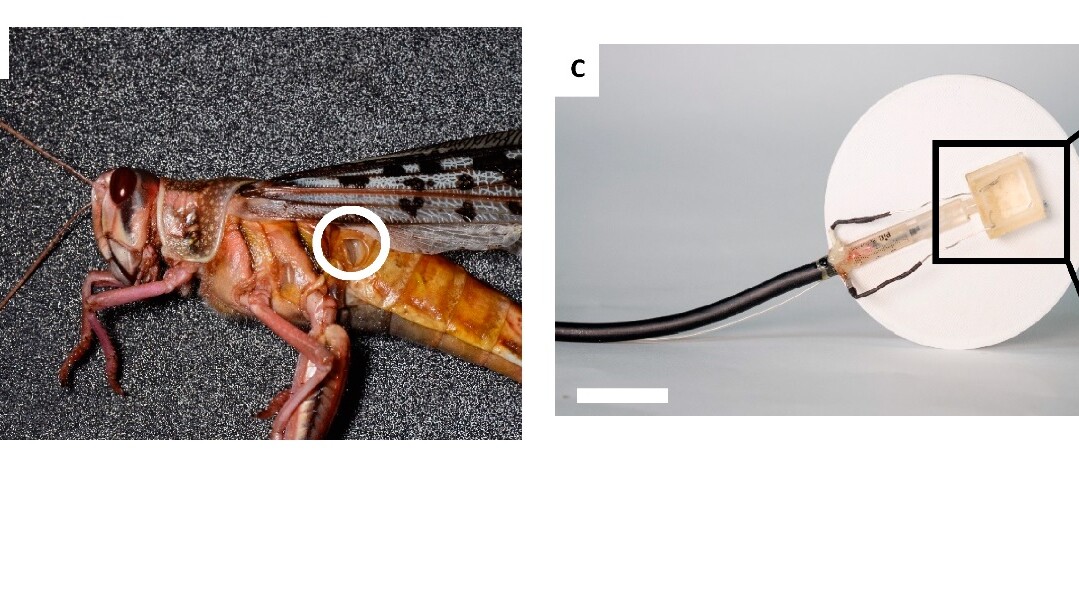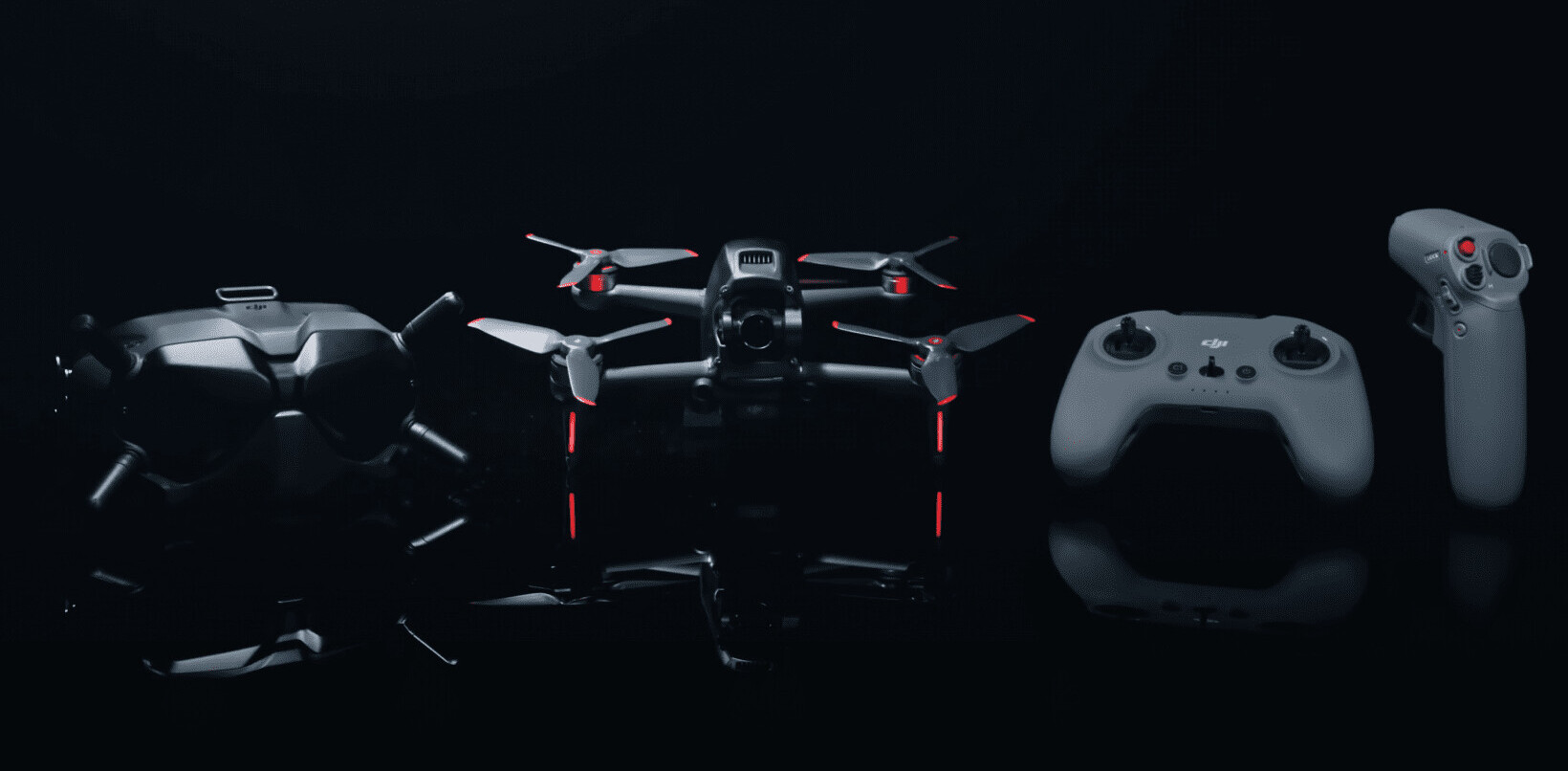
A team of scientists from Tel-Aviv University have successfully given a robot the ability to hear sounds through the use of a dead locust’s ear.
What? Seriously. A university press release highlighting the team’s work had this to say:
Researchers at Tel Aviv University report that they have successfully connected the ear of a dead locust to a robot that receives the ear’s electrical signals and responds accordingly. The result is extraordinary: When the researchers clap once, the locust’s ear hears the sound and the robot moves forward; when the researchers clap twice, the robot moves backwards.

How’s it work? It’s actually pretty simple. The researchers use the dead locust’s ear in the exact same way they’d typically use a microphone. Instead of wiring up a human-made electronic device, the team just wires up Mother Nature’s work in a similar fashion.
According to team lead Ben Maoz:
Prof. Yovel’s laboratory built the robot and developed code that enables the robot to respond to electrical auditory signals. And my laboratory has developed a special device — Ear-on-a-Chip — that allows the ear to be kept alive throughout the experiment by supplying oxygen and food to the organ, while allowing the electrical signals to be taken out of the locust’s ear and amplified and transmitted to the robot.

Quick take: This is pretty rad. We’ve seen scientists create some strange and wonderful cyborgs by combining insect biology with robotics before. Just check out this 2017 article about a team of researchers who developed a method by which to control living dragonflies remotely like drones.
But this new locust-cyborg research is amazing in its own right because, rather than control the motor functions of a living creature, it demonstrates how AI can harvest existing biological technology in a piecemeal fashion to create a functioning machine a la carte.
Necromancy? In this economy?? Actually, it’s hard to imagine a more cost-effective way to build a robot army than to design inexpensive systems that could, for example, be para-dropped into a given geographical location with the ability to scavenge their own body parts. How terrifying is that?
You can read the whole paper here.
Get the TNW newsletter
Get the most important tech news in your inbox each week.




